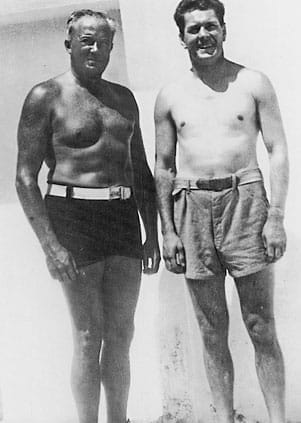 When a championship boxer describes you as a tough competitor, you know it’s true. In 1967, heavyweight champion boxer Gene Tunney wrote a Reader’s Digest profile of Bernard Gimbel, the retailing giant who served as his occasional sparring partner: “Whether he was negotiating a multi-million dollar deal, devouring a gargantuan platter of corned beef and cabbage, jogging five miles before breakfast, or betting on a horse race, he did it with a verve and gusto that was pure joy to watch.”
When a championship boxer describes you as a tough competitor, you know it’s true. In 1967, heavyweight champion boxer Gene Tunney wrote a Reader’s Digest profile of Bernard Gimbel, the retailing giant who served as his occasional sparring partner: “Whether he was negotiating a multi-million dollar deal, devouring a gargantuan platter of corned beef and cabbage, jogging five miles before breakfast, or betting on a horse race, he did it with a verve and gusto that was pure joy to watch.”
Tunney recalled that the fully-clothed Gimbel burst into the shower with him after Tunney’s famous defeat of Jack Dempsey in Philadelphia on September 23, 1926. Before the fight, Gimbel had conferred with him about boxing strategy, and his congratulations couldn’t wait. Born in 1885 into a retailing family, Gimbel went to work fulltime in the Gimbel’s
Philadelphia store in 1907 following his graduation from Wharton. By 1908 he was vice president of the Philadelphia store, one of several developed from his grandfather’s mid-1800s Indiana-based lace-and-pots store. His competitive streak immediately became apparent when Gimbel expanded into New York retail turf in 1910, where he launched a legendary battle with Macy’s. Despite initial opposition from his father and seven uncles, Gimbel’s New York store became a resounding success via the introduction of discount “basement” sales and other retail initiatives.
Gimbel soon bought upscale Saks, a move that provided a significant cushion when Gimbel’s suffered during the Great Depression. Purchasing and selling hard-to-find items during World War II, as well as developing stores at suburban shopping malls, allowed the company to greatly expand. Annual sales increased during Gimbel’s tenure as president (1927–1953) from $15 million to $600 million. Gimbel died in 1966.


























